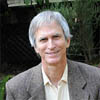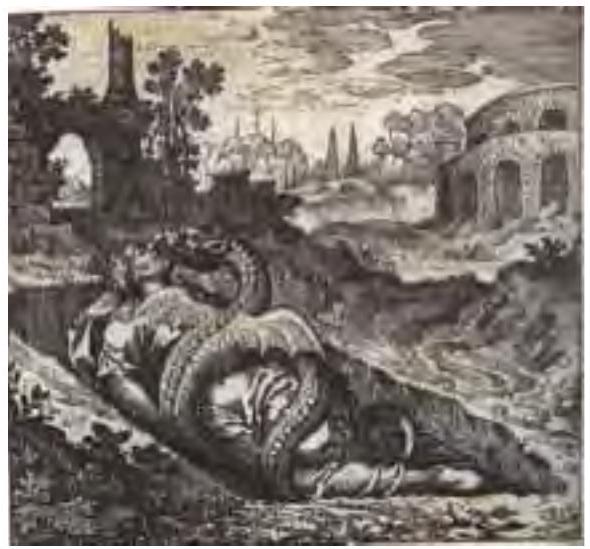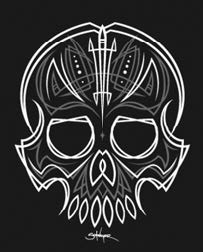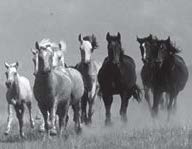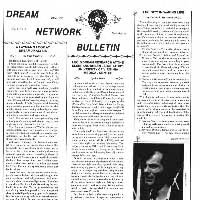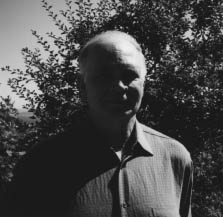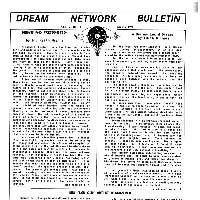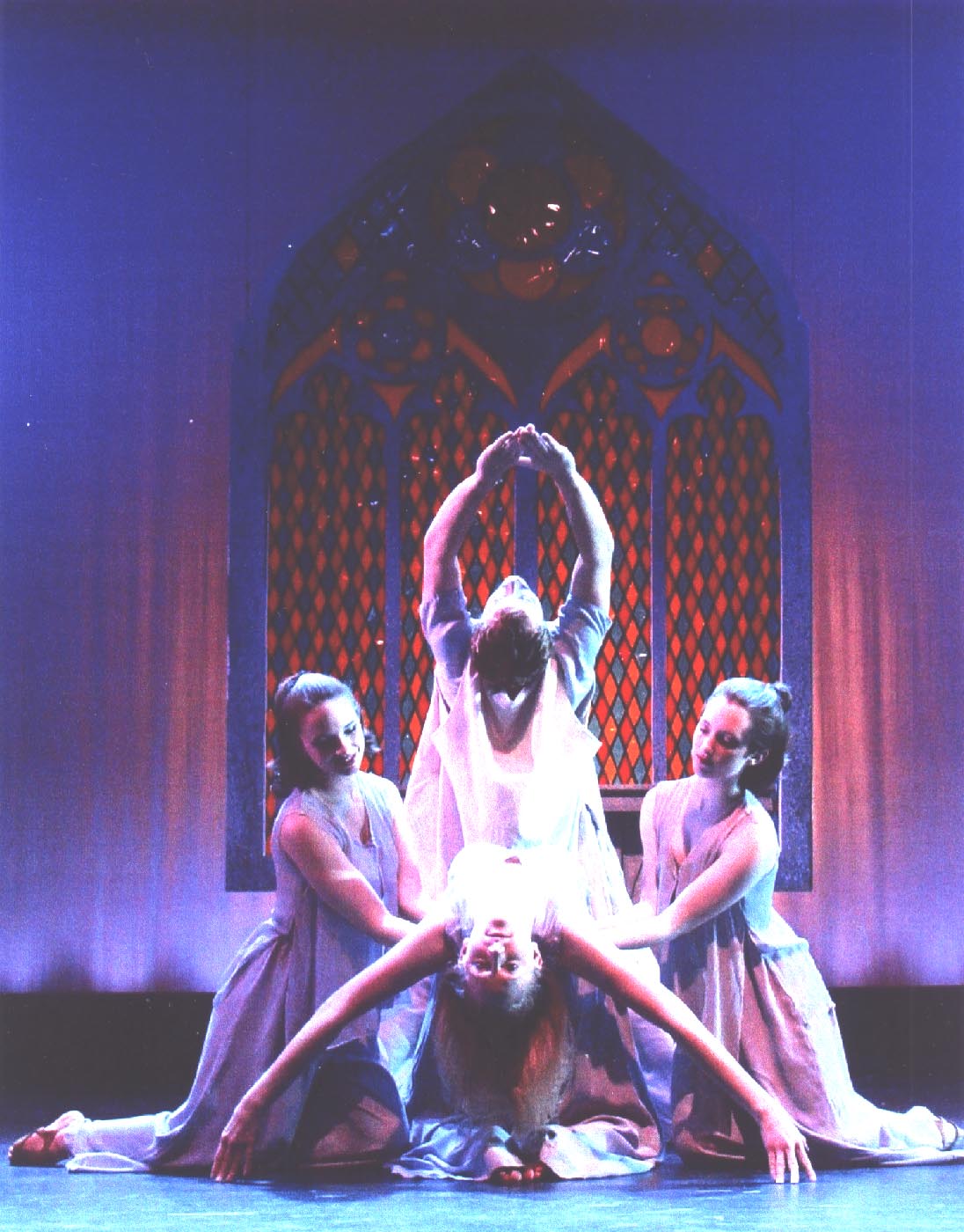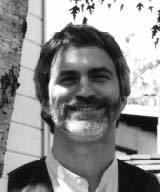
Abstract
This clinical case study shows how a series of dreams guided a 3 1/2 year psychotherapy treatment. The client's dreams illustrate the intelligence of the unconscious in addressing issues of prolonged bereavement, depression, sexuality, love, creativity, and helping clarify the individual's vocation and life goals. The study demonstrates how dreams promote individuation through the emergence of a personal, spiritual symbolism. Dreams are recounted featuring the Father archetype, the Anima, figures such as The Silver Man, The Old Homeless Man, The Dead Bear, Duke Ellington, and the symbolism of archaic male initiation rites. The author notes recurring symbols through the series of dreams, and how the dreams allowed the client to work through emotionally charged memories and moods. The study illustrates in practical terms the catalytic role that dreams can play in psychotherapy.
Introduction
The case study that follows demonstrates how dreams can help a psychotherapist guide a client, one step at a time, through the labyrinth of personal change. Dreams illuminate developmental tasks and stir up rich, juicy material for therapeutic exploration. Dreams pinpoint what the client needs to revisit from the past, what the client is feeling right now, and reveal emergent potentials, new directions, new possibilities. They move the therapeutic process forward with a powerfully healing influence.
The technique of dreamwork I utilize is simple. I ask questions about every image and every person appearing in the dream. I ask the client, What does this remind you of? I try to avoid foreclosing the meaning of a dream and always remain open to alternative meanings, multiple interpretations.
Carl Jung referred to the dream as a text:
"Every interpretation is a hypothesis, an attempt to read an unknown text... A relative degree of certainty is reached only in the interpretation of a series of dreams, where the later dreams correct the mistakes we have made in handling those that went before... I... urge my patients to keep a careful record of their dreams and of the interpretations given... At a later stage I get them to work out the interpretations as well. In this way the patient learns how to deal correctly with the unconscious without the doctor's help." (cited in Storr, 1983, pp. 178-9).
Jung believed that through dreams we can access the wisdom of the deep unconscious, which guides us and anticipates the future. In Jung's view, the relations between the ego and the unconscious occur through symbolism, through what he called the "uniting symbol" (p. 225). "In symbols the union of conscious and unconscious contents is consummated. This union of opposites is the transcendent function... This rounding out of the personality into a whole may well be the goal of any psychotherapy that claims to be more than a mere cure of symptoms" (p. 226). The dreams I describe below illustrate vividly the union of opposites and the rounding out of the personality into a whole, as well as the transformative and catalytic role of dreams in psychotherapy.
Dreams are the psyche's means of self-healing. Before introducing the main case study, let me describe a brief example. A man named Joe, who was very discouraged and depressed about his relationships with women, having recently been dumped by a woman who left him for another man, had this dream: "I was swimming underwater. The water was very clear and warm with a lot of rich plant life growing in it. I saw a rose that was my mother's. The rose was on the surface and began to sink down toward the bottom. I saw how deep and vibrant its red color was. It had no thorns. I caught it before it reached the bottom. It came to rest in my hand and when I touched it, it began to open up and blossom in my hand with a very powerful and loving energy. Later it began to rise to the surface again." Joe and I explored our associations to each part of the dream. Being underwater suggested being submerged, immersed in water, in his emotions, in the unconscious. The water is warm and life-giving, suggesting it is safe and life-enhancing to explore the unconscious. The Rose is a symbol of the Self, flowering, individuation. He said, "It reminds me of deep, honest love." I said, "It is a symbol of your true Self and that at your core you are a man of deep, honest love." He said, "It reminds me of unshakeable, unfailing love, like my mom's love for me." The red color of the rose suggests heat, passion, smoldering with feeling. He said, "I'm angry about being derailed from being trusting, loving. I want to love someone with all my heart." The rose with no thorns evoked feelings of being defenseless, innocence, having no aggression, no thorns. It is an image of vulnerability, of true, honest feelings. I said," The rose coming to the surface suggests bringing into conscious awareness from the depths of yourself the awareness that in your essence you are a man of deep, honest, open love." One month after having this dream of the Rose, Joe met someone, fell in love, they quickly moved in together, and he completed his stint of brief therapy. End of story!
The Case Study
The case I will present now involves a lengthy series of dreams that portrayed a client's inner world of memories, emotions, and emergent potentials. This client's dreams illustrate the intelligence of the unconscious in addressing issues of bereavement, depression, sexuality and love, creativity, vocation and life goals. This case study illustrates how dreams promote individuation through the emergence of a personal, spiritual symbolism. We'll note how certain symbols reappear and evolve through this series of dreams, and how the dreams allowed working through of chunks of material, specific memories and moods. Often work with a dream led to weeks or months of exploration of a particular issue or feeling. The dreams I will recount were like an underground stream that irrigated the therapeutic process-nourishing, providing focus and emotional depth. Through these dreams we encounter the intelligence of Psyche, the unconscious, that living, breathing, self-organizing medium that is the focus of our work, and the object of our fascination, as therapists.
My client, whom I will call Chris, began seeing me when he was 28 years old, and I have been working with him weekly for three and a half years. He is an artist, and the son of an artist. Chris has a college degree and is currently employed doing building maintenance for a large business firm.
In our first session together (10/11/99), Chris informed me that, when he was six years old, his father died at the age 41 from cancer. His father was a follower of Christian Science and refused medical treatment. Chris said, "Dad's death was never dealt with. Mom was overwhelmed with four kids. There was no funeral. I saw shrinks throughout high school and college. I have problems with lack of focus. I lost the momentum to do art after college because of the pressure of working to support myself. I've been experiencing a total creative block. I want to unfold my creativity, but I'm stuck. That is making me very depressed. I have very few friends. I also have a lot of issues in my three year relationship with Ann. I am confused about my sexual attraction to men." These were the main presenting issues. I quickly learned that Chris was preoccupied with his father's death, and that his artwork is filled with material that refers to this event.
About a month later Chris brought me this first dream (11/8/1999):
I am driving in a car in traffic in a suburban neighborhood. A little boy runs in front of me, 4 or 5 years old. I jump out of the car. There are two kids there. I grab the younger child, being really tender. I hug him very close, and tell him he has to be careful or he could get hurt. The streets are dangerous; they aren't for kids to play in. The younger boy runs off, playing mischievously. I am shocked by his fearlessness.
Chris comments, "The two boys were like a part of me, unsupervised, roving. I didn't have a lot of adult supervision as a kid." "What did these kids look like?" "The younger one was 4 or 5 years old with a blonde, Dutch boy haircut; he looked just like me. He seemed aloof, in his own world. I remember being very aloof." I said, "Do you mean that after your dad's death you were numb?" "Yes, I acted that way because I didn't want others to see I was in pain. I was totally unemotional. I forced back tears, tried to be strong." "In the dream you are looking at yourself as a little boy and embracing this part of yourself." "It reminds me of how my mother gave me a watch and I deliberately destroyed it by throwing it against a wall. I had a lot of pent-up anger, and I took it out on this watch my mom gave me." Tears flow as Chris recounts this episode. The kids in the dream also remind Chris that as a child he always had imaginary friends; he remembered playing alone a lot. I ask Chris what it felt like to hug the boy: "I felt like a protective parent." In the dream Chris is extending kindness toward himself, forming a relationship with this four-year old part of himself.
The next dream (11/28/99) highlights Chris' anxiety about his desire for closeness with other men, and also, incidentally, seems to illustrate Freud's tripartite model of the id, ego, and superego. Chris dreams:
I am in a park where I see lots of men around, who are hanging out together, sitting on blankets, some walking hand in hand. I am interested in them but I am not a part of the group, just witnessing, observing. All of a sudden there is a thunderous roar of surveillance helicopters whose pilots are patrolling and filming everything. The men in the cockpit are taking photos or video of the men in the park, spying on them. The pilots are hooting and hollering at the men below, laughing like giddy little kids. They act like they are in charge.
Chris's comments that the men in the park holding hands remind him of an incident when several gay men whistled at him in Golden Gate Park. The dream evoked feelings of sexual curiosity about men, a theme that would occupy several therapy hours. Freud would say these impulses emanate from the id, and are a cause of internal conflict for the dreamer. The men in the helicopter cockpit (the pun is no doubt fully intended by the unconscious) are surveying the scene, and seem uncomfortable and childish in their reaction to the other men being affectionate with each other. They are symbols of the superego, internal judgement. They are homophobic authority figures, who act like they're in control. Chris says, "These men remind me of my brother, who is extremely homophobic." They are hovering above, assuming a position of superiority, as if they're better than the men below. The pilots are like voyeurs, with cameras. They remind Chris of, "A part of me that watches, witnesses when around an openly gay environment." Witnessing suggests the perspective of ego consciousness trying to mediate the conflict between id and superego, impulse and restraining judgement. The men hovering and watching from above contrast with the men on the ground, who, Chris said, represent community and overcoming isolation, not just men attracted to men. Chris is in the middle trying to sort this out and gain some perspective.
Dreams always have multiple meanings, not just one, and our interpretations should never become too literal or single-minded. I was interested in Chris' comment that the men in the park symbolized men having a good time together, developing a strong sense of community, overcoming isolation. This image evoked comments from Chris about his loneliness and desire for friendships with other men. Since moving to the Bay Area three years earlier Chris still did not have a single male friend. He is feeling isolated, and attributes a lot of his difficulty to the homophobia he has faced-both in himself and in other men-living in the Bay Area. He said the dream also reminded him of men working together, artists sharing studios, and also therapist and client working together. After working with this dream there was an internal shift from homosexual fantasies to a longing for male friendship and for mentorship by older men, as well as acceptance of the emotional support and nourishment he derived from his regular therapy sessions with me.
Dreams of the Father
Two months later, Chris had this crucial dream (1/ 24/00):
I am in the woods in the middle of nowhere. I have not brought any food, clothes, a tent or sleeping bag. What should I do? I am totally unprepared. I start eating sticks with twigs and briars and thorns.
He says, "It reminds me of feeling alone and unprepared." I say, "Like a child without a father." I want to keep naming this for Chris. He said, "I don't know how to cope with the world. I feel unequipped for my life." "What does eating thorns remind you of?" "It reminds me of Christ with the crown of thorns. It reminds me of my dad, and how he martyred himself for his beliefs in Christian Science. The strength of his faith carried him through cancer eating his body." I said, "The dream also evokes the image of your own cross, your own suffering over the loss of your father. Jesus said, 'Father, father, why hast thou forsaken me?' The dream portrays your reenactment of the Christ mythos, and the way you have been reliving your dad's suffering over and over again. There is a sense of your sharing or participating in his suffering. The dream is trying to unfold a resolution to this drama." This is an example of how the symbols emerging from the deep unconscious connect us to a mythic, transpersonal level of meaning. Chris has been fixated on his father's death, and the dream helps resolve this predicament by revealing its archetypal core.
Seven weeks later, Chris dreams (4/3/00):
I am walking through an underdeveloped part of town, on a dirt path. Paul Auster, the novelist, walks with me. He was like a mentor-father. I felt close to him. We may have been holding hands.
Here again are men connecting. Asked his associations to Paul Auster, Chris said, "I had a sense of him as the greatest father in the world. He is an artist who is uncompromising, utterly dedicated. He found it hard to make a living from his art when he was younger. But he stuck with it and he made it. Father-son is a prominent theme in his writing."
So, too, father-son was a central theme in Chris' healing journey. Here he meets the Father-Artist, and experiences closeness with this figure. He spent many therapy hours recounting events that he wished his father had witnessed and participated in. At the same time, Chris was establishing a positive bond to me as a trusted guide. Developmentally, Chris needed just the right amount of male attention and interest in his growth and unfoldment. Once this was internalized he was able to move forward and make major choices about the direction of his life.
The next dream a few weeks later repeats the theme of being unprepared (4/24/00):
I am with friends from high school. We are climbing Mt. Fuji, at night. There is snow. We find a little cabin. I realized I am wearing shorts and a T-shirt. I was unprepared for the climb. I decided to go back down.
Chris said, "Mt. Fuji reminds me of climbing the mountain of life." I ask Chris about his friends from high school. He said, "Interestingly, one of these people recently got a photo editing job without a lot of background. She had guts, she put herself out. I admire that. I know I have a talent that I haven't tapped. I have the resources inside me but I don't know how to make use of them effectively." Being unprepared on the mountain top suggests lack of foresight and planning, not looking ahead. Chris' dream poses the question, What is needed to climb the mountain, to reach the pinnacle of success and achievement? This echoes Daniel Levinson's idea that climbing the ladder is a central metaphor and developmental task of adulthood (Levinson, 1978). In the dream Chris retreats, climbs back down to safe ground. Chris wanted to make decisions about his career and life direction, but he wasn't quite ready. The path forward wasn't clear. It wasn't yet time to ascend the mountain. It would in fact take two more years before Chris made the decisions that began to shape his life direction. He needed a lot of time to work through the past before new possibilities emerged. As so often occurs, the block, the complex, the client's sense of frustration, often gets worse once treatment gets underway.
The Dream of the See-Saw Train
The next dream illustrates that sometimes it is the therapist's associations that lead the interpretation forward. Chris dreamed (5/8/00):
Standing in front of a bridge. There are concrete walls as barriers at the outer edges of the bridge. I'm on the concrete wall hanging on to it. You got on a complicated contraption like a seesaw train from old movies; you pump yourself out to the bridge. Then you could cross the bridge. A little boy was next to me, about four years old. The boy was leaning back, starting to fall. I caught him. He didn't know what was happening.
Chris was perplexed by this dream and didn't have any initial associations. I prompted him, saying that the Bridge implied transition, crossing a threshold. The pump suggests pressurizing a sense of motivation; "priming the pump," building up a charge of intention, purpose, desire, and ambition. I said, "Something about losing your father thwarted your sense of ambition. You felt it's useless, what's the point of trying?" "Yes. The little boy reminds me of Me. He was very serious, troubled; he wasn't sure he liked where he was. He reminds me of my childhood." I said, "To cross the bridge you have to hold this boy and keep him safe; you can't let him fall. To cross the bridge you have to prime the pump, build a charge, get over the lethargy and hopelessness. The loss of your dad left you feeling that there is no one to be proud of you." "The dream is saying that I want to take myself and my ambitions more seriously."
Sometimes the smallest dream fragment releases intense memories and affect (5/22/00). Chris dreamed: "I'm on a long bike tour in Connecticut. I rode around in circles." Chris said, "This reminds me of learning to ride a bike when I was 7 or 8 . I was alone, I had training wheels. I rode around in circles a lot. A dominant memory of my childhood is riding a bike and being alone. I had elaborate fantasies about who I was with, a motorcycle gang or a group of friends." The dream takes him right back to that time, to the feeling of loneliness. I said, "This makes me think of a boy learning to ride a bike with his dad watching, cheering him on, celebrating his son's achievement of autonomy. The dream evokes a conscious memory of loss, of the absence you experienced, the loneliness of your childhood." Chris replied, "I spoke to imaginary friends a lot." And the session ended there. I wish I had asked him who his imaginary friends were. But I never did.
The Dream of the Homeless Man and the Lost Father
In his next session (5/29/00) Chris told me this significant dream:
In a café. I went to the bathroom. When I return my art equipment bag is gone, and my meal has been eaten. A man is sleeping in the window. He gets up. He is a black man, dishevelled, covered in blankets. He had the bag. I say to him, 'You've got my bag.' He scowled, looked me in the eye, handed me the bag, and walked away. When I saw he hadn't put up a fight I felt sorry for him and wanted to give him something, and I followed him. I found him sleeping in a car. Another black man with gray hair was nearby watching. I ran away. The guy was just watching. No one was chasing me, but I wanted to run.
Chris comments: "The art equipment symbolizes my career change issue, the whole issue of being an artist. It is stolen from me. The dishevelled, Homeless Black Man reminds me of the Other, someone who is foreign to me. It reminds me of the only dream I ever had about my dad." And now Chris recounts for me this pivotal dream: "He [my father] is this homeless looking guy with a poncho on. He has something under the poncho. Is it a backpack or a hump? He is a mystery to me. Is he homeless or does he live somewhere? He is the Wanderer, the Oppressed, a person the odds are against." "What odds are working against you?" I asked. "My fears of failure, of lack of talent or business-savvy." "You feel that the loss of your father stacked the odds against you. His death feels connected to your lack of confidence, and fear of failure. You felt a lack of paternal support to help you out. This dream figure gives you back the camera, your career. In the dream you felt sorry for the man. Who do you feel sorry for?" "I feel sorry for me, and my mom. The homeless man reminds me of a man without a family, a family without a man"; in other words, it reminds him of his father, his family." The homeless man also reminded Chris of feeling rootless, his fear of never having a career and a stable life. The wandering man's hump reminded Chris of "disfigurement, mystery, something concealed from me. I didn't know what it was." I said, "Maybe your father's pain was hidden to you." "Yes. And the black man represents for me the extremes of human potential. People like Malcolm $X$ and Bob Marley overcame poverty and became the best of all people. The black man in the dream represents being self-made, fierce, overcoming adversity. He reminds me of fatherless children, broken families, the struggle of women to keep it all together." Chris' feelings about his mother would soon come into vivid focus.
The Dream of the Church, the Pagan Altar, and the Sacrifice
7/3/00:
I'm at work. My office has moved and now it's a church, empty, closed down. I walk through the pews. Light is coming in through windows. I go down to the basement of the church. I was in this ancient pagan place of worship. The floor was a cave, painted blue. There was a design in the center of the floor, a pentagram or mandala, a large circle. In the back of the room was a sign that said, "Do not go beyond this point." This is where sacrifices are performed. They sacrifice sheep.
"It felt creepy. It was like the basement when I was a kid. I wanted to leave." Chris says, "The scene reminds me of the Christian Science church. My dad died because he refused medical treatment. It also reminds me of a Pagan worship site, a very personal, sacred place, connected to the earth and a rebirth of spirituality. I wondered, were they sacrificing sheep or children? That reminds me of a sense of loss in my childhood and my feeling of a lost childhood." I said, "The sheep reminds me of Christ as the shepherd; also, being meek, innocent. So the dream evokes the sacrifice of the innocent." "That's what happened to me as a boy-the sacrifice of the innocent. My dad was innocent and helpless, too." "The dream suggests that you are entering forbidden territory, something off limits, perhaps your identification with your dad's suffering, and your own." Chris said, "My childhood was sacrificed. Parents make sacrifices for their children. My mom's whole life she made sacrifices for us. She sacrificed her childhood to work during WWII. Her grandfather was sacrificed by the Nazis. Then she lost my dad. I used to be wracked with guilt about all my mom went through. I always felt like anything I went though would be nothing compared to her life." Chris wept as he said this. The dream's motif of sacrifice jars loose memories and emotions that have been long buried. These intensely feeling-full moments in Chris' session were evoked by following his associations to this dream journey down into the underworld, to a blue cave with a sacred circle where rites were enacted involving the sacrifice of sheep, symbol of innocence, the need to be led, shepherded. Perhaps this attitude of innocence and meekness is what needed to be sacrificed on this internal altar. Only then could Chris hope to reach a place beyond the grief and survivor guilt that afflicted both he and his mother. Note the mandala painted on the floor of this sacred cave; an internal order is emerging within the psyche, even amidst the apparent chaos of the unconscious.
(To be continued, Vol. 23 No. 2)
References:
Eliade, M. (1979). The Forge and the Crucible: The Origins and Structures of Alchemy. Chicago: University of Chicago Press.
Herdt, G. (1982). "Fetish and fantasy in Sambia initiation." In G. Herdt (Ed.), Rituals of Manhood: Male Initiation in Papua New Guinea. Berkeley, CA: University of California Press.
Hill, G. (1992). Masculine and feminine. Boston: Shambhala. Levinson, D. (1978). The seasons of a man's life. New York: Ballantine.
Storr, A. (Ed.) (1983). The Essential Jung. Princeton, NJ: Princeton University Press.

